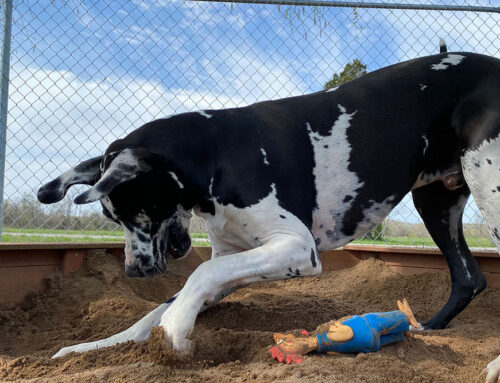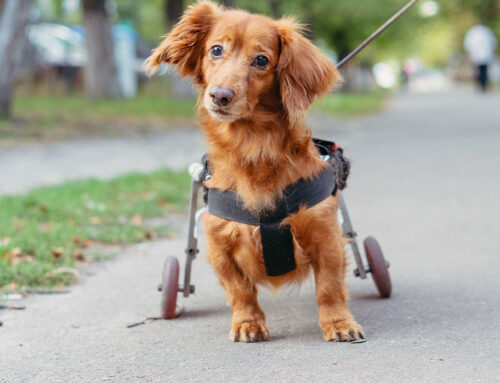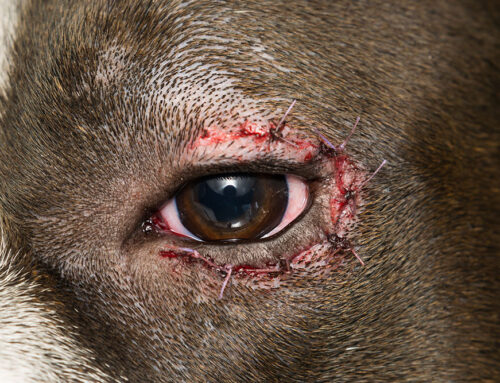Certain physical and behavioral changes can indicate your pet has a serious health condition. Our Wales Animal Clinic team wants your pet to receive the care they need, and we explain what signs mean your four-legged friend needs veterinary attention.
Recognizing your pet’s ‘normal’
The best way to identify any changes that might be cause for concern is by knowing your pet’s typical behavior, habits, and routines so you can recognize deviations that may indicate an underlying health problem. You know your pet better than anyone and are in the best position to advocate for them when they need care. Pay close attention to your pet’s daily actions so you can recognize their “normal” and realize when things aren’t right. Keep reading to learn signs you should never ignore.
Changes in your pet’s eating and drinking habits
Whether your pet enthusiastically gulps down their meal or slowly grazes on their food throughout the day, a change in how they eat or drink can indicate various health concerns. Considerations include:
- Decreased appetite — Your pet can lose interest in their food for numerous reasons, including illness, pain, and stress. A veterinarian should always investigate appetite loss.
- Increased appetite — A sudden increase in your pet’s appetite can indicate conditions such as parasite infection, diabetes, Cushing’s disease, hyperthyroidism, or medication side effects.
- Decreased thirst — If your pet is drinking less water than usual, they could be affected by illness, pain, or stress, and if the fluid loss isn’t corrected, they can quickly become dehydrated.
- Increased thirst — Excessive thirst can indicate conditions such as diabetes, hyperthyroidism, pyometra, and chronic kidney disease (CKD).
Your pet experiences respiratory distress
An occasional cough or sneeze is not cause for concern, but if your pet has persistent coughing or sneezing, they could be affected by a serious respiratory infection or heart condition. In addition, if your four-legged friend shows such signs as labored breathing, open-mouth breathing, excessive abdominal movement during breathing, or blue gums, they are in respiratory distress and should be evaluated by a veterinarian.
Fluctuations in your pet’s weight
Unexplained weight loss and weight gain can both indicate a medical problem.
- Weight loss — Unless your pet is on a diet, they shouldn’t lose weight. If your four-legged friend loses weight while eating normally, this could signal digestive issues, cancer, diabetes, or other metabolic disorders.
- Weight gain — Unexplained weight gain can be caused by hypothyroidism or abnormal fluid accumulation that can make your pet look as if they have gained weight. Even if your pet’s weight gain is caused by sneaking treats, they should be evaluated by a veterinarian, because overweight and obese pets are at higher risk for serious health conditions like diabetes, arthritis, CKD, and cancer, and your veterinarian can devise a safe and effective weight loss plan.
Changes in your pet’s elimination habits
Altered bathroom habits can indicate your pet has a health problem.
- Urination changes — If your pet strains or vocalizes while they urinate, this could indicate a urinary tract problem like a urethral obstruction or urinary tract infection. In addition, if your cat stops using their litter box, they may be affected by stress or health issues, such as feline lower urinary tract disease (FLUTD), CKD, or diabetes.
- Bowel movement changes — If your pet has one diarrhea bout and otherwise seems normal, you can monitor their condition, but excessive or persistent diarrhea, blood in the stool, or diarrhea accompanied by other signs, including lethargy, vomiting, fever, or abdominal pain, should be investigated by a veterinarian. In addition, if your pet is constipated, they need veterinary care to prevent a blockage.
Your pet’s behavior changes
If your normally high-energy dog is lethargic and uninterested in playtime, or your typically attention-seeking cat is constantly hiding and uncharacteristically irritable, they could be affected by a medical issue. Pets are good at hiding illness and pain, and often the first sign of a problem is a subtle behavior change. Don’t ignore these changes thinking your pet is just being moody. The sooner a problem can be identified and treated, the more likely the prognosis will be a better one for the affected pet.
Your pet has bad breath

Most people think smelly breath is normal for pets, but bad breath is typically the first sign of dental disease, a serious condition that affects most pets by the time they are 2 years of age. In addition to bad breath, dental disease can cause issues such as swollen and inflamed gums, loose and missing teeth, and tooth root abscesses. Also, if the causative pathogens enter your pet’s bloodstream, they can damage their internal organs, specifically their heart, kidneys, and liver. If your pet’s breath is stinky, let our Wales Animal Clinic team know so we can address the issue before it causes wide-ranging health problems.
Being attuned to your pet’s well-being involves more than just love and attention—it also requires a keen eye for subtle changes. Early detection and intervention can make a significant difference in your pet’s quality of life. If you notice any of these health signs, contact our Wales Animal Clinic team so we can provide the care they need.







Leave A Comment